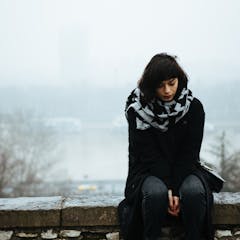
Articles on Daylight saving time
Displaying 1 - 20 of 36 articles

Even in states that don’t have daylight saving, most people favour it. However, support is strongest in the country’s south, where the difference between summer and winter daylight hours is greater.

Americans have long been divided over adopting permanent standard versus permanent daylight saving time. But support for permanent standard time grew dramatically between 2021 and 2024.

Americans are divided on their preference for daylight saving time versus standard time. But research shows that our bodies fare better when aligned with the natural light of standard time.

Research shows that young adults and women are particularly susceptible to seasonal affective disorder.

Adolescent biology, early morning classes and too much evening screen time are a few of the key drivers behind teen sleep deprivation.

Research suggests that permanent daylight saving time would save lives as well as energy and prevent crime.

From boosted mood, to improved sleep, to more impetus to be outdoors and socialise, longer daylight can have a variety of direct and indirect benefits on our wellbeing.

Two sleep doctors offer some survival tips to help you adjust to losing that hour of sleep as clocks spring forward into daylight saving time.

By altering the body’s internal clock, ‘springing forward’ may contribute to an increase in heart attacks and strokes.

Dusk is a dangerous time of day for hitting wildlife on the road, and the one-hour time change means more drivers are out while deer are at their most active and visibility is dropping.

Springing forward for daylight saving time will be especially hard this year due to sleep loss from COVID-19. Why does the US keep doing this?

The time at home from the coronavirus crisis could be an opportunity to let our natural sleep rhythms take over.

Research shows how decision making by investors is affected by the one-hour clock change.

Daylight saving time starts this weekend, and it can often be the beginning of new dramas getting kids to bed. Here’s how to make the transition a little smoother.

Humans have natural cycles for when they are active and for when they sleep. Modern work and school schedules interfere with this, and more studies are showing why there’s a possible health risk.

Springing forward onto daylight saving time means Americans will lose an hour of sleep. Two sleep doctors offer some survival tips as you adjust.

Washington, California and Florida are mulling a permanent switch to DST. Proponents say that doing so could improve health, save energy and prevent crime.

Research shows that daylight-saving time changes do more harm than good. It’s time to abolish the practice.

Daylight saving time begins this weekend, which means many of us will get an hour less sleep. But the health effects go beyond sleep – and can last two weeks or more. Here’s what the research says.

Overseas research says putting the clock forward hurts the financial markets. But not in Australia, according to a real-world study along the Queensland-NSW border.
